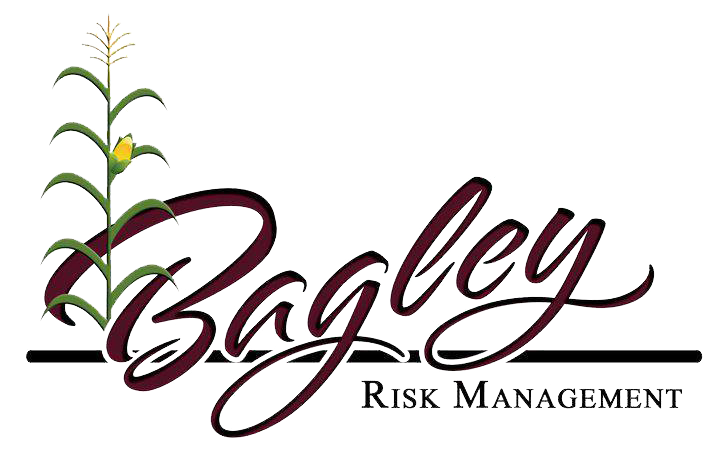Not known Incorrect Statements About Bagley Risk Management
Table of ContentsSome Ideas on Bagley Risk Management You Need To KnowBagley Risk Management - An OverviewThe Of Bagley Risk ManagementFascination About Bagley Risk ManagementSome Known Facts About Bagley Risk Management.An Unbiased View of Bagley Risk Management
When your contract reaches its end date, the last rate is calculated making use of the CME Feeder Livestock Index. If the index drops listed below your agreement's coverage price, you might be paid the difference.Livestock Threat Protection (LRP) is a USDA subsidized insurance program that helps safeguard producers from the risks that originate from market volatility. With LRP, producers have the ability to guarantee a flooring rate for their livestock and are paid an indemnity if the market worth is lower than the insured cost.
This product is intended for. LRP insurance.
The Bagley Risk Management PDFs

In the last couple of months, numerous of us at FVC and PCM have obtained concerns from manufacturers on which danger administration device, LRP vs. Futures, is better for a pork producer? Like most tools, the response depends on your procedure's goals and scenario. For this edition of the Dr.'s Corner, we will analyze the circumstances that tend to favor the LRP tool.
In Mike's analysis, he compared the LRP estimation versus the future's market close for each and every day of the past 20 years! The percentage shared for every month of the offered year in the first section of the table is the portion of days because month in which the LRP computation is less than the futures close or simply put, the LRP would potentially indemnify even more than the futures market - https://www.reddit.com/user/bagleyriskmng/. (Livestock risk protection calculator)
As an example, in January 2021, all the days of that month had LRP possibly paying greater than the futures market. On the other hand, in September 2021, all the days of that month had the futures market possibly paying more than LRP (no days had LRP less than futures close). The propensity that reveals itself from Mike's analysis is that a SCE of a LRP has a higher probability of paying more versus futures in the months of December to May while the futures market has a greater likelihood of paying much more in the months of June to November.
Getting My Bagley Risk Management To Work

50 or $5. 00). As an instance, in 2019, LRP was far better or within a $1. 25 of the futures market over 90% of the days in all the months except June and August. Table 2 shows the typical basis of the SCE LRP computations versus the future's close for the given period each year.
Once more, this information sustains extra chance of an SCE of a LRP being much better than futures in December through May for a lot of years. As a common care with all evaluation, past efficiency is NO guarantee of future efficiency! It is crucial that manufacturers have accounting methods in location so they know their price of production and can better establish when to use threat monitoring tools.
The Ultimate Guide To Bagley Risk Management
Some on-farm feeders may be contemplating the requirement for rate protection at this time of year on calves retained with the intent to feed them to a surface weight sometime in 2022, utilizing offered feed sources. In spite of solid fed cattle costs in the existing neighborhood market, feed costs and present feeder calf bone values still create limited feeding margins relocating forward.
The current ordinary auction price for 500-600 pound steers in Nebraska is $176 per cwt. This suggests a break-even cost of $127. The June and August live cattle agreements on the CME are presently trading for $135.
Cattle-feeding ventures often tend to have limited margins, like several agricultural business, because of the competitive nature of the service. Livestock feeders can bid a lot more for inputs when fed livestock costs increase. https://www.directorytogoto.com/articles/bagley-risk-management-navigating-livestock-risk-with-lrp-insurance. This raises the price for feeder cattle, specifically, and somewhat increases the prices for feed and other inputs
Excitement About Bagley Risk Management
Areas much from significant handling centers often tend to have an redirected here adverse basis. It is essential to keep in mind that regional results also affect basis values for 500-600 extra pound steers in the loss. Nebraska cattle are close to significant processing facilities. Because of this, basis declares or absolutely no on fed cattle across much of the state.
Only in 2020 did the LRP coverage cost go beyond the finishing worth by enough to cover the premium expense. However, the internet impact of having this LRP protection in 2019-20 was significant, including $17. 88 per cwt. to the lower line. The outcome is a favorable typical web result over all 5 years of $0.
37 The producer premium declines at lower protection levels but so does the insurance coverage price. Because manufacturer premiums are so low at lower insurance coverage degrees, the producer loss proportions (indemnity/premium) increase as the protection degree declines.
Bagley Risk Management - Truths
Generally, a manufacturer must consider LRP insurance coverage as a mechanism to shield result rate and succeeding earnings margins from a risk administration standpoint. Some producers make an instance for insuring at the lower degrees of protection by concentrating on the choice as a financial investment in threat management defense.
